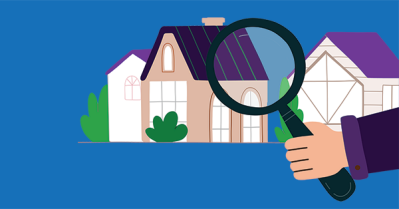Key Takeaways
- Local authorities have the power to introduce selective licensing of privately rented homes in order to tackle certain problems in specific areas.
- It is different from an HMO license.
- If you own a Buy to Let property or are buying one, it could become subject to selective licensing at any time.
- A selective licencing scheme can be designated in an area for up to 5 years and may charge reasonable fees, payable by landlords.
- Consultation and approval requirements depend on how much of the area, or of privately rented residential housing within the area, is affected by the proposed scheme.
- Selective licensing can only be designated where specific problems are identified, with a specific goal in mind, where there is no viable alternative solution, and where its efforts are supported by further actions being taken by the Local Authority (LA), consistent with their overall housing strategy.
Selective licensing is being introduced as part of a general Government aim toward more security, stability and decency in the private rental sector. In general, selective licensing schemes aim to raise standards of property management to: improve housing demand, property conditions and deprivation, as well as alleviate pressures of migration and reduce incidences of anti social behaviour and crime.
What does selective licensing mean for me as a landlord?
If your property is in a designated area, you must:
- Produce a Gas Safety certificate (if the property has a gas supply)
- Keep any electrical appliances in a safe condition
- Install smoke alarms in proper working order
- Supply the occupiers with a written statement of the terms of the occupancy
- Obtain references from persons wishing to occupy the house
- Adhere to other standard regulations as usual (i.e. provide EPCs)
Your local authority may impose further discretionary conditions, including:
- Restricting or prohibiting the use of certain parts of the property
- Requiring you to take reasonable steps to prevent antisocial behaviour by your occupiers or visitors
- Requiring you to attend a training course in tenancy management
Why is selective licensing used?
Selective licensing is used to tackle one, or a combination of, six specific issues:
1Low housing demand
2Significant and persistent antisocial behaviour
3Poor property condition
4High migration, whether from elsewhere in the country or abroad
5High levels of deprivation (a lack of basic necessities)
6High levels of crime
Selective Licensing & Antisocial Behaviour
Your local authority can't impose selective licensing based on anti social behaviour from just a few specific properties. In this case it is more likely that they would make a Special Interim Management Order (SIMO) on that specific property(ies), taking over the management of the property for up to 12 months.
Designations on the grounds of property conditions, migration, deprivation and crime may only be made in areas with a higher than average proportion of properties in the private rented sector. Local Authorities must identify which, if any, issue is present in the area and what the goal of the designation will be, i.e. to improve the property conditions in the area.
They'll also need to consider whether an alternative scheme or solution could otherwise achieve that goal. They can only make a designation where there is no practical and beneficial alternative and they are satisfied it will achieve its goal, along with other supporting actions taken by the local authority.
Will I be consulted about selective licensing?
The local housing authority
must: take reasonable steps to consult persons who are likely to be affected by the designation, and, consider any representations made in accordance with the consultation. This means local housing authorities will conduct a full consultation of 'local residents, including tenants, landlords and where appropriate their managing agents and other members of the community who live or operate businesses or provide services within the proposed designation'.
The guidance issued by the government also suggests that they should include residents and those who operate businesses or provide services in the surrounding area outside of the proposed designation that will be affected in the consultation and publicise it widely.
If less than 20% of the geographical area or of privately rented housing in the area are affected then local LAs will not be required to obtain approval for the scheme from the Secretary of State, however they must consult for a minimum of 10 weeks. If it is more than 20% they will be required to obtain approval for the scheme from the secretary of state and are strongly recommended to consult for the full 10 weeks.
When a selective licensing designation is made, there are three months before it comes into force. A notice will be published in the designated area within the first week and anyone who was consulted will be notified within the first two weeks, giving you at least 2.5 months notice.
Your local authority will review the designation from time to time and may revoke it if it is ineffective, or its goal has been achieved. It may also be renewed beyond the 5 year term where it has been somewhat effective but continued efforts are required to reach its goal.









